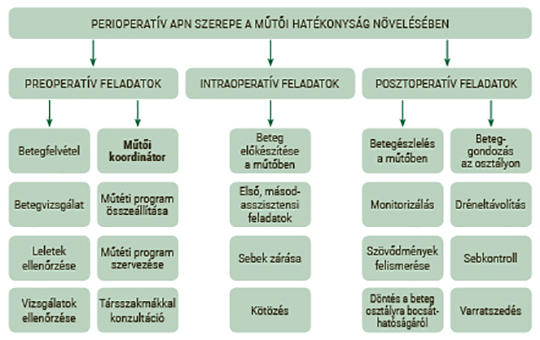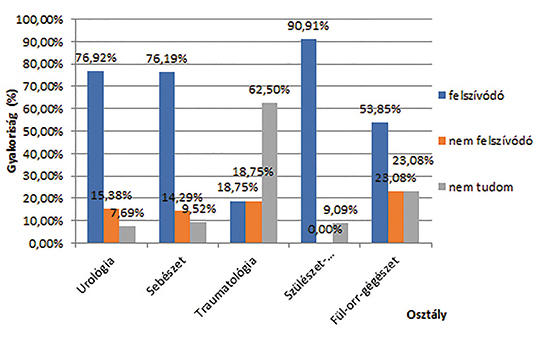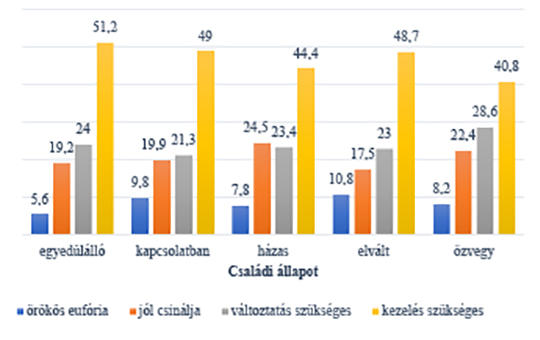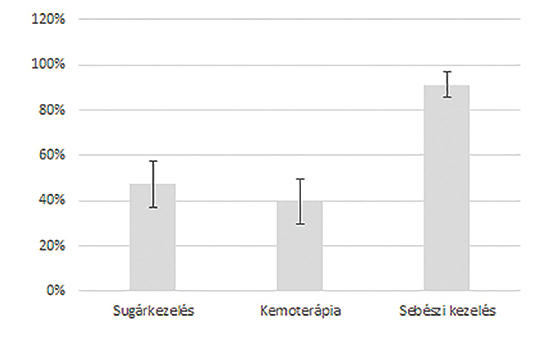The eLitMed.hu medical portal uses computer cookies for convenient operation. Detailed information can be found in the Cookie-policy.
Journal of Nursing Theory and Practice - 2022;35(1)
Content
[Hungarian Nurses Day]
[On February 19, 2022 We celebrate the 205th anniversary of the birth of the first national matronage (head nurse), Zsuzsanna Kossuth. Zsuzsanna Kossuth was characterized by a high degree of empathy, self-sacrifice, exemplary behaviour, and professionalism. She laid the foundation for the processes of nursing and patient care and performed outstanding professional work throughout his life. She made no distinction between man and man, she only saw the suffering patient, in every soldier and injured. She sacrificed his life for his profession. The Hungarian Nursing Association founded the Zsuzsanna Kossuth commemorative medal in 1998, the year of the 150th anniversary of the War of Independence, which is donated every year on February 19.]
[Operational Efficiency Investigation from APN Perioperative Perspective]
[In the healthcare system operating theatres have to put great emphasis on quality work, patient safety and efficiency as well, and to achieve this, optimal utilization of theatres is extremely important. The results of researches in this topic in Hungarian and international literature draw attention to a lot of aspects. The study of perioperative periods, and the evaluation of the analysed processes show that theatres could be operated more effectively. As a result of this, more operations could be carried out and waiting time would also reduce. In order to increase the efficiency of the processes, APNs can play a prominent role at several points. According to the experience, the number of people using health care and the number of people waiting for surgery is increasing, which is further increased by the development of the ongoing SARS-CoV-2 (COVID-19) epidemic. Thereby, patients are not satisfied with the service. The work of APNs would also help increasing the contentment of patients during the operation procedures. Taking advantage of the multifunctional role of the nurse due to her knowledge and training, she actively participates in the operation, in the smooth running of the scheduled daily surgical program and contributes to the reduction of the number of missed, planned surgeries.]
[Assessing Nurses’ Knowledge of Surgical Wound Care, Complications and Knowledge of Bandages]
[Aim of our research was to assess the knowledge of nurses working in surgical departments about surgical wound treatment, phases of wound healing, its complications, and intelligent bandages. Our quantitative, cross-sectional, descriptive examination was carried out in a hospital in Transdanubia with non-random, expert sampling and a self-made questionnaire. Our target group was nurses working in the surgical departments of the hospital (N=85). During the data analysis, the descriptive statistical methods of MS Office Excel 2016 software were calculated: mean, standard deviation, frequency. A χ2-test was used to examine the relationship between variables (p <0.05). Knowledge of bandages was not affected by educational attainment (p>0.05). Those who perform wound care in their daily work have more knowledge about the wound treatment sequence of the wounds that are primarily healing, as well as about intelligent dressings (p<0.1). For the classes, there was a significance for the recognition of complicated wounds, knowledge of the benefit of the absorbable suture and the use of analgesic procedures (p<0.001). In the interests of patient safety, nurses’ knowledge of wound treatment needs to be continuously improved. It is necessary to provide an accessible source of information and further training.]
[Correlations Between Burnout and Socio-demographic and Workplace Related Factors Among Health-care Workers During The Covid-19 Pandemics]
[The present study aimed to assess the level of burn-out among health-care workers in 2020 and its correlations with socio-demographic and workplace related factors. The cross-sectional study was conducted by the means of a self-constructed online survey in the beginning of 2021. The responses of 1965 people were analysed with the help of SPSS 23.0. Descriptive statistics, chi-square and Kruskal-Wallis probes were run (p<0.05). Severe burnout was present in 46.7% of the responders. Age, marital status, type of health-care provided and years spent in the health-care system didn’t show any correlation with burnout. Unsure vision, opinion about salary raise and uncertainty at the workplace influenced the level of burnout significantly (p<0.000). The mental health of health-care workers is in continuous decline, in which the COVID-19 pandemic might play a big role. People with worse mental health feel more uncertain regarding their future and job; this might make providing health-care more and more difficult.]
[Assessing Quality of life of Women with Cervical Cancer After Treatment]
[To assess sexual function, functionality and quality of life in women with cervical cancer. Descriptive, cross-sectional, quantitative, non-random, purposive sampling of women (N=91) with FIGO stage I/II/III cervical cancer, more than 5 months after last treatment. The study used standard questionnaires with self-designed questions. Data were analysed using Microsoft Excel, descriptive and mathematical statistics (p<0.05). Completers who received radiotherapy scored significantly higher in functional status (p<0.05) and emotional function than those who did not receive radiotherapy (p<0.05). Completers with lower levels of emotional well-being were significantly more likely to have lower levels of sexual function and higher levels of gynaecological problems (p<0.05). Women affected by cervical cancer often experience somatic and psychological disturbances that reflect on quality of life associated with the disease and treatment.]
1.
Clinical Neuroscience
Is there any difference in mortality rates of atrial fibrillation detected before or after ischemic stroke?2.
Clinical Neuroscience
Factors influencing the level of stigma in Parkinson’s disease in western Turkey3.
Clinical Neuroscience
Neuropathic pain and mood disorders in earthquake survivors with peripheral nerve injuries4.
Journal of Nursing Theory and Practice
[Correlations of Sarcopenia, Frailty, Falls and Social Isolation – A Literature Review in the Light of Swedish Statistics]5.
Clinical Neuroscience
[Comparison of pain intensity measurements among patients with low-back pain]1.
Clinical Neuroscience Proceedings
[A Magyar Stroke Társaság XVIII. Kongresszusa és a Magyar Neuroszonológiai Társaság XV. Konferenciája. Absztraktfüzet]2.
3.
Journal of Nursing Theory and Practice
[A selection of the entries submitted to the literary contest "Honorable mission: the joys and challenges of our profession" ]4.
Journal of Nursing Theory and Practice
[End of Life and Palliative Care of Newborns in the Nursing Context]5.
Journal of Nursing Theory and Practice
[Aspects of Occupational Health Nursing for Incurable Patients ]






